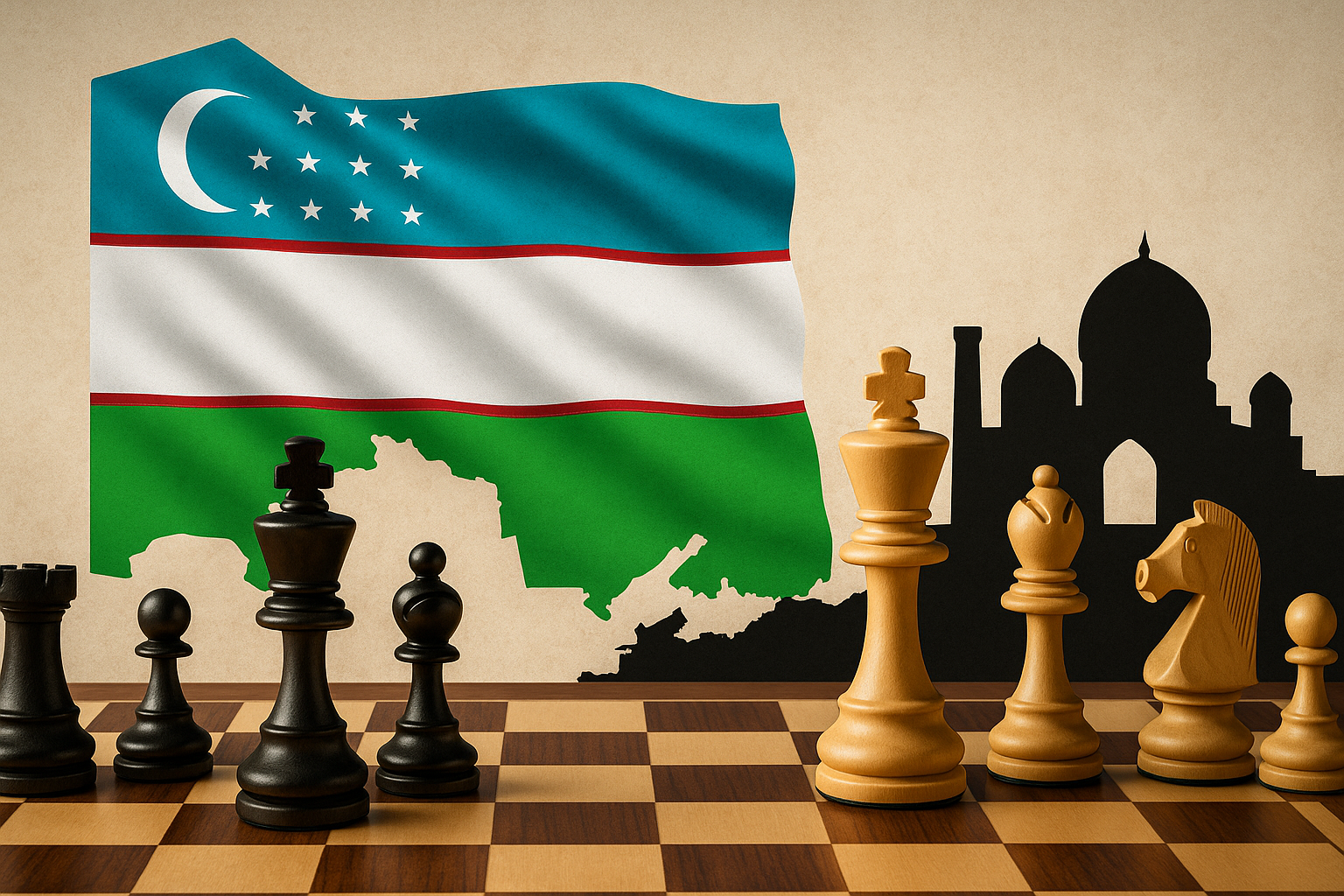The Origins of Chess
Chess, one of the world’s oldest and most intellectually revered games, has a history that stretches back over 1,500 years. It is widely believed to have originated in India during the Gupta Empire around the 6th century, where it was known as chaturanga, meaning “four divisions of the military” — infantry, cavalry, elephants, and chariots.
As the game spread to Persia, it became shatranj, and from there traveled through the Islamic world and into Europe, evolving into the modern game we recognize today. Over centuries, chess became a symbol of intelligence, strategy, and even political thinking — an art form as much as a game.
Chess in Central Asia and Uzbekistan
The lands that make up modern-day Uzbekistan — once part of ancient empires like the Samanid and Timurid dynasties — played a significant role in the early Islamic Golden Age, a period that contributed heavily to the intellectual development of chess.
Some of the earliest written works on chess theory came from Persian and Arabic scholars, and Uzbekistan’s historic cities like Samarkand, Bukhara, and Khiva were crucial centers of learning and cultural exchange. Though not always front-and-center in medieval chess development, Uzbekistan has long shared a connection with the game through its Silk Road heritage.
Soviet Influence and Structured Growth
During the Soviet era, chess was heavily promoted across the USSR as both an intellectual pursuit and a tool of state prestige. Uzbekistan, as a Soviet republic, benefited from this emphasis:
- Chess clubs and schools were set up across Tashkent and other major cities.
- Talented players received formal training and participated in republic-level and inter-Soviet competitions.
- Uzbek chess began laying a foundation of structure, discipline, and early talent identification.
However, post-independence in 1991, the spotlight on chess dimmed slightly as the nation focused on economic and political development.
The Modern Rise: A New Golden Generation 🇺🇿
The past decade has seen a dramatic rise of chess in Uzbekistan, with the emergence of several young prodigies and an infrastructure that supports talent development.
Key Milestones:
- 2018: Nodirbek Abdusattorov, at age 13, became one of the youngest grandmasters in history.
- 2022: Uzbekistan’s national team won Gold at the Chess Olympiad in Chennai, defeating global powerhouses like India, the U.S., and Armenia.
- 2024: Nodirbek Yakubboev wins the inaugural UzChess Cup, showcasing the country’s depth of elite players.
Notable Players:
| Name | Highlights |
|---|---|
| Nodirbek Abdusattorov | 2021 World Rapid Champion; World Top 10 in FIDE Rankings |
| Nodirbek Yakubboev | 3-time Uzbek Champion; 2024 UzChess Cup winner |
| Javokhir Sindarov | Became GM at 12; a steady performer on the world stage |
| Shamsiddin Vokhidov | Olympiad 2022 key contributor |
These players are part of what many call Uzbekistan’s “Golden Generation of Chess” — a wave of youth trained rigorously with modern tools and international exposure.
Infrastructure and Federation Support
The Uzbek Chess Federation, in collaboration with the Uzbekistan government, has made chess a national priority:
- Funding for international tournaments and training camps
- Introduction of chess in schools as an extracurricular activity
- Hosting top-tier events like the UzChess Cup, attracting global attention
This support has been instrumental in building a sustainable pipeline of talent.
Cultural Significance and National Pride
Chess has become more than just a game in Uzbekistan — it is now a source of national pride, a symbol of the country’s intellectual potential on the global stage. Young kids across cities and rural areas alike now see grandmasters as heroes, not just sports icons.
Conclusion
From the ancient roots of shatranj to the bustling chess halls of Tashkent today, Uzbekistan’s chess journey is one of revival, resilience, and remarkable success. With a young, driven generation of players and solid institutional backing, the future of Uzbek chess looks brighter than ever.
As the country hosts elite events like the UzChess Cup 2025, the world watches not just for great games — but for a blueprint of how a nation can rise to the top of the chess world.



